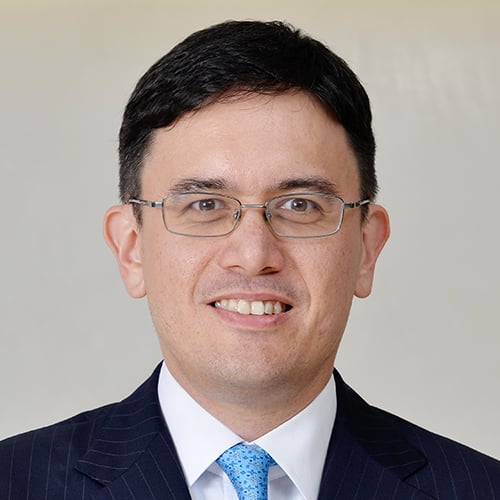 |
|
| Sandip Patil, regional head, global liquidity and investments, treasury and trade solutions, Citi |
As volatility and uncertainty continues in developed markets while emerging markets in Asia display impressive growth opportunities, companies of all sizes are seeking to diversify and expand their customer bases and create sustainable revenue models.
To facilitate their expansion in Asia, companies need to provide business services that rationalize and streamline their businesses, while keeping a firm handle on costs to maximize efficiency. Shared service centres (SSCs) are a proven strategy for providing services regionally or globally on a scalable basis, and can enhance competitive advantage. Previously attractive for MNC’s expanding into Asia, SSCs are now also becoming a popular strategy with mid-cap companies as they capitalize on the region’s growth prospects.
As a result, Citi is witnessing huge growth in the number of SSCs that we support, now totalling around 300 in Asia alone and more than 1,000 globally. According to recent insights from Citi Treasury Diagnostics, 71% of top-tier corporations headquartered in US or Europe have already established SSCs, while 45% of such companies headquartered in emerging markets have done so. We anticipate that this gap will close quickly as companies globally recognize and realize the benefits of centralization.
Locating the SSC
There are a variety of factors that influence companies’ choice of location for an SSC. Firstly, they consider the physical and economic infrastructure, such as availability of labor, utilities, telecom and real estate. Secondly, they look at strategic and operational issues such as investment benefits, political and economic risk, and the regulatory environment. Thirdly, they consider the day-to-day experience of operating an SSC, such as lifestyle and the language, culture, work ethic, skills and productivity offered by the local workforce.
Having considered these factors, many companies have chosen low cost countries like India, Malaysia, China and the Philippines in the past, as they typically meet their economic, geopolitical and workforce objectives. These locations continue to be popular; however, we are seeing secondary cities in China and India emerging as shared services locations. Countries like Singapore also remain popular for providing shared services for highly specialized functions.
In China, Shanghai traditionally has the highest concentration of SSCs. However, some companies are now looking to set up SSCs further west to take advantage of lower costs, while others are opening SSCs in the north of China to leverage enhanced foreign language skills. At the same time, local governments are competing to attract SSCs, with cities such as Chengdu, Chongqing, Dalian, Shanghai, Suzhou and Tianjin all becoming popular destinations. These SSCs are equipping themselves both to service customers in China, but also those in other parts of Asia and even globally. Companies with established shared service operations are also looking at China as a hub for Northern Asia services to ensure they are getting the language skills required to support Taiwan, Korea and Japan as well.
Expanding Reach and Scope
Companies are inevitably at differing stages of their SSC development. Some established their SSC in Asia as early as the late eighties, while others are in the early stages of building a shared services model. Whatever the initial scope of the SSC, cost savings are typically the first priority, and we have seen clients realizing cost savings of up to 40-45% of unit costs. As SSCs expand the range of services that they provide, however, and move further up the value chain in the organization, objectives such as enhancing visibility, efficiency and control and reducing both operational and financial risk become a higher priority.
Today, many SSCs are transforming into ‘true business enablers’ and expanding rapidly to cover a wider range of business functions such as receivables, cash application, human resources, procurement, travel and entertainment, and bank guarantees. By managing activities across the financial supply chain, across order-to- cash and purchase-to-pay, companies are reporting significant cost savings and working capital improvements.
As SSCs gain maturity, they often start contributing to their company’s business transformation objectives by making use of the volume trends, analytics, and business intelligence to provide actionable insights. SSCs also start taking the driver’s seat in negotiating better payment terms, improving cash flow forecasting, reducing operational risk, managing credit allocations, and optimizing working capital for the organization.
Whatever the SSC’s degree of maturity, finance managers and treasurers seek a banking partner that can act as a trusted advisor and share best practices based on its experience working with comparable organizations. In particular, having the relevant regional and global platforms, and best-in-class solutions to meet the SSC’s transactional, information and technology integration requirements are key criteria for companies as they scale their SSC operations to support continuing business growth.
Citi specializes in SSC initiatives that promote partnerships in strategic finance transformation journeys. We have helped companies to implement and expand their SSCs in two key ways:
• Horizontal expansion: Together with the client, we implement financial processing for one or two countries, and then roll out its capabilities more widely. This approach is useful in testing and proving the SSC concept and then replicating success in a standardized way.
• Deep dive analysis: As part of Citi’s SSC operations consulting service, we share our depth of experience by working through each step in the financial supply chain with clients, to identify opportunities for improvement, and ensure that each process is as efficient and integrated as possible. This is vital for stripping out costs and optimizing working capital.
This is typically a joint approach including both the SSC and regional treasury centre to align objectives and information flows.
Recently, we worked with a client to release hundreds of millions of USD from their supply chain, reflecting the huge strategic value of such supply chain initiatives. Other market-leading partnerships include the re-engineering of payments process across the region to introduce automation and an STP rate of 99%.
Moving from Operational to Strategic Value
Companies that set up their SSCs some time ago are now asking ‘what next?’, focussing not only on tactical savings but on the opportunities for strategic cost management, business growth contribution and incremental value-add around strategic goals of the organization.
An SSC’s contribution to the business can be elevated in many ways including supporting mergers and acquisitions, taking on additional functions, making the move from a shared service center to a global business services centre, and setting up analytics functions that utilize data that runs through the centre to make pro-active business decisions. Whatever the path for your Finance SSC, it is imperative that your banking partner can support these strategic changes and provide the innovative technology and services required to facilitate the evolution.
Facilitating growth is not simply about supporting existing manufacturing or distribution models in new regions. The growth of digital commerce brings enormous potential for new distribution models that may be less infrastructure- intensive. We are seeing considerable interest in digital business models across many industries, which will in turn require SSCs to change or include different services, such as facilitating online payments and fulfilment. Another key trend is the use of mobile technology and we have recently helped leading global companies in the region to launch mobile collections as well as adopt mobile payment authorization and initiation within their SSCs.
Delivering Value Today and Preparing for Tomorrow
Looking ahead, we anticipate that the current trends we are seeing in the establishment and growth of SSCs in Asia will continue, with an increasing number of Asian multinationals seeking to centralize and optimize more financial processes. Concurrently, their Western counterparts who are expanding in the region will also be incorporating additional locations and global business functions to their shared services.
Given the growth and complexities across Asian countries, many Asian SSCs have become more specialized to provide some centralized processes, and are starting to roll out hub-and-spoke models with separate SSCs for clusters such as North and South Asia. This approach enables standardization across a region yet recognizes the specific requirements in more regulated economies and thus, strike an effective balance between two contrasting goals.
As mature SSCs evolve into strategic business partners, technology continues to be the biggest enabler for greater cost savings, process re-engineering and analytics. We see that the assimilation and integration of technology will continue with further standardization and consolidation as companies move to single platform environments, and begin leveraging bank-agnostic communication channels such as SWIFT and SAP Financial Services Network. Mobile technology and cloud-based services are also creating new opportunities for eCommerce, to which SSCs also need to adapt in order to satisfy the evolving needs of the business. Citi is proactive in developing and supporting innovative technology and leveraging this technology to create bespoke SSC and treasury solutions that are adapted to each organization’s business model as they forge new strategic pathways throughout Asia.
Overall, SSCs continue to be a big frontier for companies that have toiled to establish Asian franchises and are on a growth path. The strategic delivery and operational efficiency it brings to the business is vital in writing companies future successes in the hyper-competitive Asian markets. Don’t miss the wave, get your organization positioned to deliver the future!
Sandip Patil is the regional head, global liquidity and investments, treasury and trade solutions, at Citi









